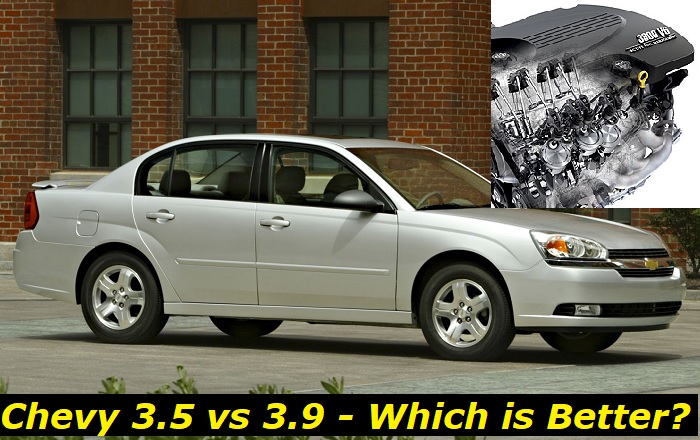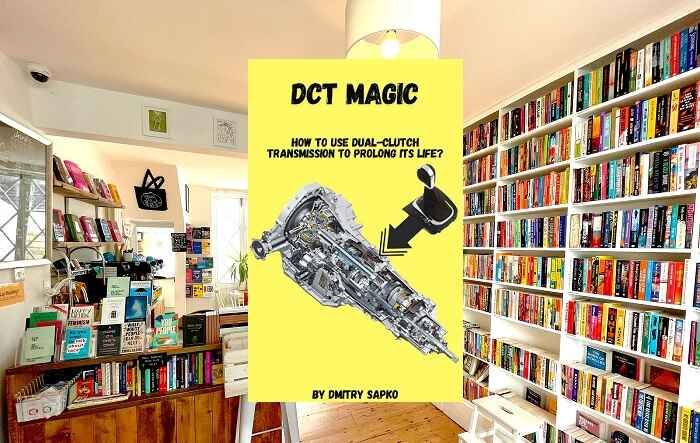Whether you're looking to buy a new vehicle, or upgrade an existing one, there's no denying that the choice of engine is incredibly important. Get a good engine, and your car or truck will feel powerful, capable in every setting, and will save you a lot of money thanks to great fuel efficiency. But, pick a bad engine, and your car will be loud, uncomfortable, expensive, and slow. In this article, we'll explore everything you need to know about GM's 3.5 and 3.9 engines, to decide which one is worth going for. Shall we get started?

Key features and my opinion about the LX9 engine
- Production years:2005-2007
- Average lifespan of LX9:190,000-220,000 miles
- Fuel supply type:port injection
- Power range:196-201 hp
- Fuel efficiency:bad
- Engine block material:cast-iron
- Engine reliability score:medium
- The most common problems:pretty slow engine, fuel economy is bad, oil leaks are very common.
Key features and my opinion about the LZ9 engine
- Production years:2006-2011
- Average lifespan of LZ9:190,000-220,000 miles
- Fuel supply type:port injection
- Power range:240 hp
- Fuel efficiency:bad
- Engine block material:cast-iron
- Engine reliability score:medium
- The most common problems:fuel economy is bad, oil leaks are very common, head gasket may fail prematurely.
GM 3.5 LX9 Engine specs
We'll start with the 3.5-liter engine- here are a few base facts you should know:
- It's a six-cylinder engine, opting for a 'V' pattern
- It produces 196-242 brake horsepower, depending on the way it is tuned
- It produces 213-242 pound-feet of torque, depending on the engine's tuning
- It uses a water-cooling system
- It's a naturally aspirated engine
As you can see from the stats, the GM 3.5 engine is, on paper at least, a very respectable choice. It's capable of producing more than enough power for both trucks and cars. Furthermore, the fact that it's a naturally aspirated engine means that it's a great engine for towing large loads.
But is the GM 3.5 engine reliable?
Is the GM 3.5 engine reliable?
GM's older engines were far from reliable. For instance, their 'Oldsmobile V8' was absolutely atrocious and prone to breaking pretty much every time it was used. Luckily, however, the 3.5 engine does not suffer these problems and is, overall, a very reliable engine.
For instance, the coolant system is incredibly efficient and well-made and won't experience faults for several hundred thousand miles. Furthermore, the engine block is made of cast iron, which many people view to be the most reliable material when it comes to making engines.
The engine's reliability is best reflected in its real-world use. For instance, the engine was implemented in the 2007 Chevy Impala, which saw no recalls relating to the engine. This evidences the fact that the GM 3.5 engine is one of the most reliable engines on the market, and a great choice if you want something low-maintenance and trustworthy.
GM 3.5 engine mileage
Another important factor when assessing an engine is its fuel efficiency. An engine can produce insane power, but if you have to fill it up every 20 minutes, it's pretty worthless. On an average vehicle, the GM 3.5 engine averages around 22 miles per gallon, which by today's standards, is pretty poor. However, at the time of its release, this efficiency was more than enough. The engine will also go for about 200,000 miles in total before running into any serious problems.
Pros of the GM 3.5 engine
Here are the most compelling reasons why you want to purchase a GM 3.5 engine:
- Torque:The GM 3.5 engine produces excellent torque, making it perfect for anyone who owns a truck, or tends to carry heavy loads.
- Reliability:The GM 3.5 engine is a workhorse and will rarely let you down. It will probably outlast most cars, and you'll almost never need to conduct any serious maintenance on the engine.
- Build-quality:The GM 3.5 engine has an excellent build quality, which is reflected in its reliability. From its cooling system to the cast iron blocks, GM took no shortcuts with this engine.
GM 3.5 Common Problems and Cons
The GM 3.5 engine is far from perfect. Here are its biggest flaws:
- Uninspiring and Slow:Whilst GM's 3.5 engine is undoubtedly reliable, it is on the slow side when compared to competing engines. So, if you want something exciting, you should probably stay away from the GM 3.5 engine.
- Fuel Economy:Whilst not the worst on the market, the GM 3.5 engine's fuel economy is certainly poor. This is something to consider if you'll be using the engine as a daily driver.
- Oil Leaks-A few drivers have reported oil leaks with their 3.5 engines. This could become a major issue if not spotted and fixed early.
Cars that used the 3.5 engine
Here are some cars which used the 3.5 engine:
- 2004 Chevrolet Malibu and Chevrolet Malibu Maxx
- 2005 Pontiac G6 sedan
- 2007 Buick Rendezvous
- 2007 Chevrolet Impala
- 2009 Saturn Vue XE AWD
- 2007 Chevrolet Monte Carlo
Most of these cars were pretty successful and reliable, largely in part to the 3.5 engine.
GM 3.9 LZ9 engine
As for the GM 3.9 engine, here are a few key facts:
- Like the 3.5 engine, the 3.9 engine features 6 cylinders in a 'V' pattern
- It produces around 220 horsepower, depending on the vehicle it's in
- It produces around 230 pound-feet of torque
- 90% of this Torque is available from 1500rpm-5500rpm
- The blocks are made of steel, as with the 3.5 engine
As you can see, the specs of GM's 3.9 engine are pretty similar to the 3.5 engine. But, how does it compare in terms of reliability and mileage?
GM 3.9 engine reliability
The GM 3.9 engine is actually a pushrod design, which is good for a few reasons. Primarily, it means that there are fewer moving parts that could go wrong, improving its overall reliability. Pushrod engines are also cheaper to produce and maintain, meaning that if something does go wrong, fixing it won't be so expensive.
Although, the overall reports of the 3.9's reliability are mixed. Some swear by this engine and have never reported a single failure. However, others have reported several common, and reoccurring problems, which we will discuss later. This suggests that, in terms of reliability at least, the 3.9 engine falls short of the 3.5.
GM 3.9 engine mileage
As for fuel efficiency, the GM 3.9 will average about 25 miles per gallon, depending on the vehicle it is in, as well as the road. This does make it slightly more efficient than the 3.5 engine. So, if you're looking for a daily-driver engine, the 3.9 may be better suited than the 3.5.
As for total mileage, the 3.9 engine should last at least 200,000 miles, putting it on par with the 3.5 engine. This is truly a great figure, especially for an older engine.
3.9 engine Pros
Here are the main reasons you'd want to purchase a 3.9 engine:
- Travel worthy:If you're looking for an engine to travel long distances, the 3.9 is a great choice. Its superior mpg and decent power make it a much more enjoyable engine than the 3.5 for longer distances.
- Torque:As with the 3.5 engine, the 3.9 engine produces excellent torque. So, if you're a truck owner or enthusiast, the 3.9 engine could be perfect for you.
- Comfortable:The 3.9 engine is far more refined than the 3.5, and produces a much smoother ride. This adds to its travel worthiness and makes the 3.9 the better choice if you're looking for a smooth and refined ride.
3.9 engine common problems and cons
However, GM's 3.9 engine is far from perfect. Here are its biggest drawbacks and most common problems:
- Gasket Failure:The gasket used in the 3.9 engine is actually of incredibly low quality. As such, the 3.9 engine is susceptible to gasket failure, which can cause serious engine problems down the line. It also takes away from the engine's overall reliability.
- Timing Issues:Many drivers have reported timing issues with the GM 3.9 engine. A common symptom of a timing issue is hearing 'ticking noises' from the engine. Timing issues can lead to a number of problems, like overheating and reduced power.
- Power:Like the 3.5 engine, the 3.9 engine can feel a little down on power at times, especially when compared to competing engines. So, if you're looking for an engine that will make your driving more exciting, the GM 3.9 V6 is a very poor choice.
- Efficiency: Although more efficient than the 3.5 engine, the 3.9 engine is hardly fuel-efficient. So, if you're looking to get the most out of your tank, the 3.9 isn't the best way to go.
Cars that used the 3.9 engine
Here are some cars which used the 3.9 engine:
- 2006 Pontiac G6 GTP Sedan, Coupe, and Convertible
- 2007 Chevrolet Malibu SS
- 2011 Chevrolet Impala- This was a particularly successful model
- 2011 Chevrolet Monte Carlo
- 2009-2011 Buick Lucerne
Which engine is the best?
The best engine for you ultimately comes down to a matter of personal preference, as both engines excel in different areas. For instance, if you're looking for something comfortable and refined, the 3.5 engine is probably the better choice for you. Whereas, if you want something a little more reliable and low maintenance, the 3.5 engine might be a better choice.
For the average driver, the 3.5 engine is probably the better choice. Because the fuel efficiencies of both engines are so similar, the everyday driver would probably prefer the reliability of the 3.5, over the refinement of the 3.9.
About the authors
The CarAraC research team is composed of seasoned auto mechanics and automotive industry professionals, including individuals with advanced degrees and certifications in their field. Our team members boast prestigious credentials, reflecting their extensive knowledge and skills. These qualifications include: IMI: Institute of the Motor Industry, ASE-Certified Master Automobile Technicians; Coventry University, Graduate of MA in Automotive Journalism; Politecnico di Torino, Italy, MS Automotive Engineering; Ss. Cyril and Methodius University in Skopje, Mechanical University in Skopje; TOC Automotive College; DHA Suffa University, Department of Mechanical Engineering






Add comment